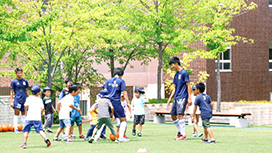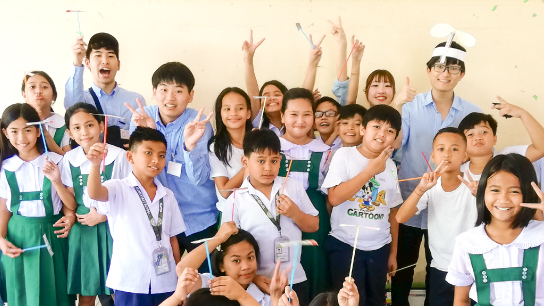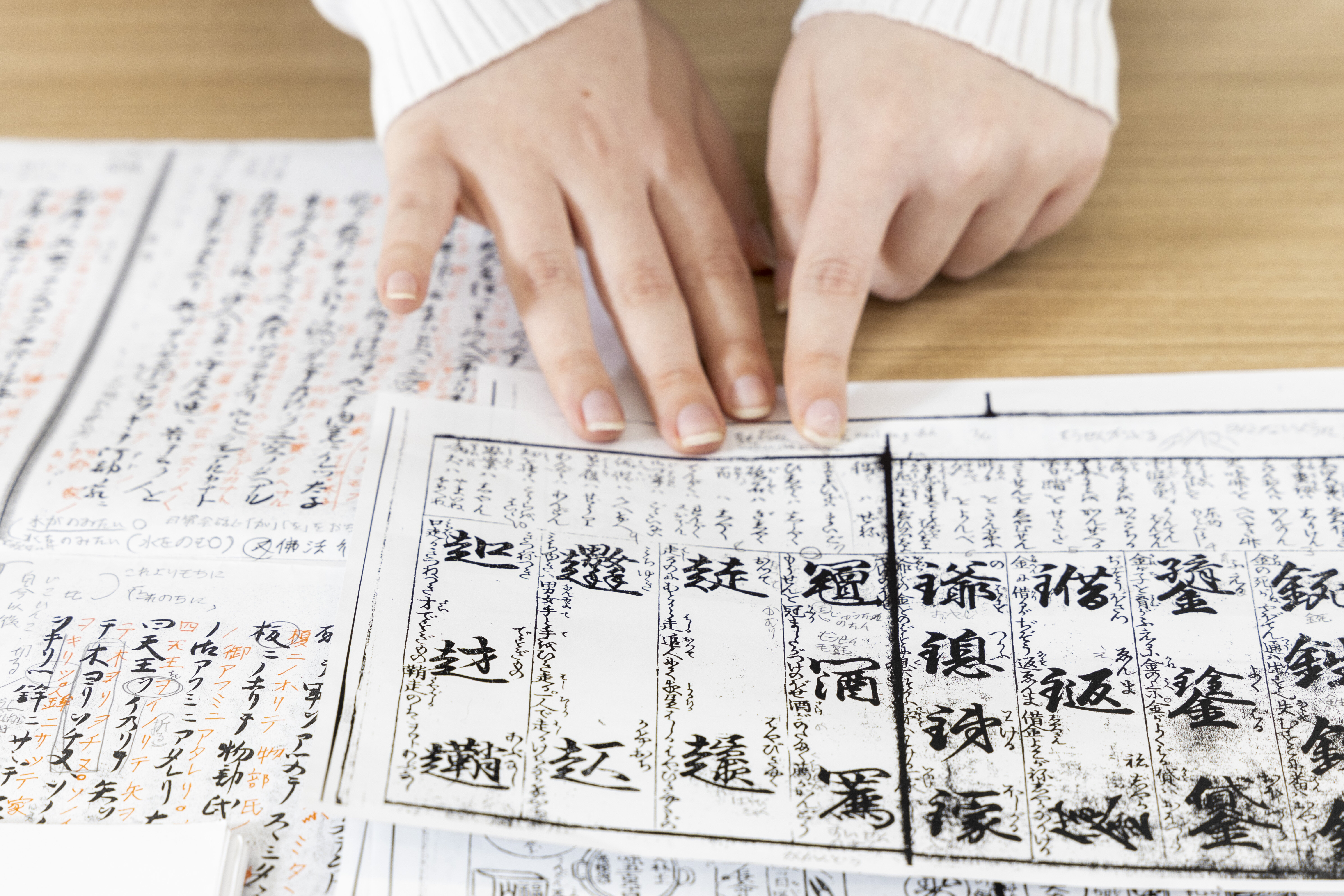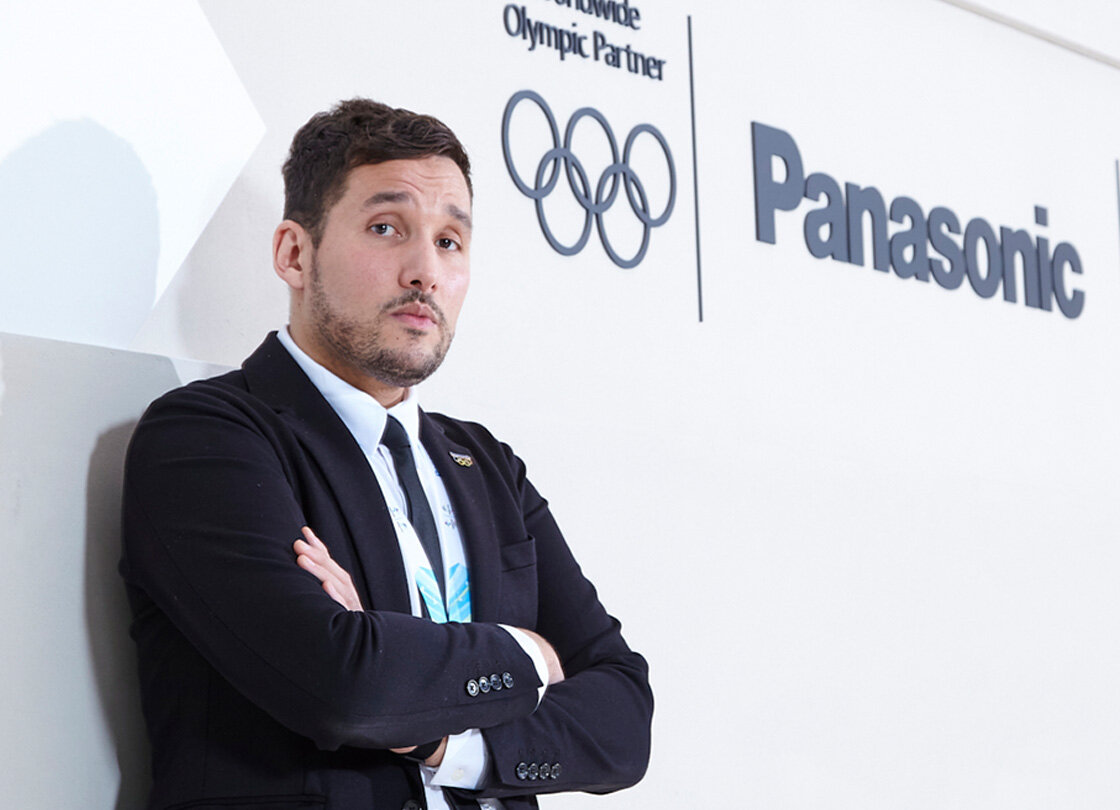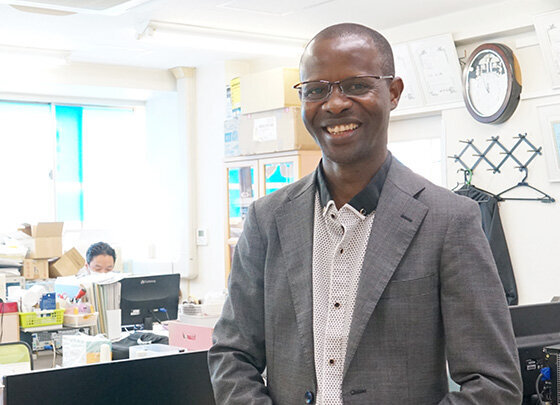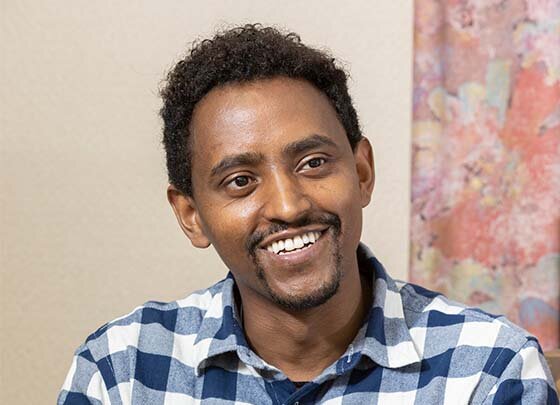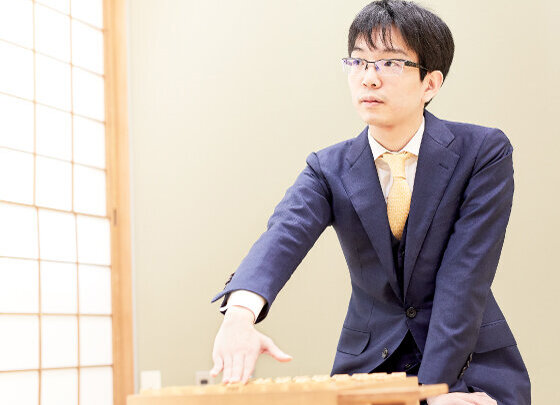KANDAI
HEADLINES
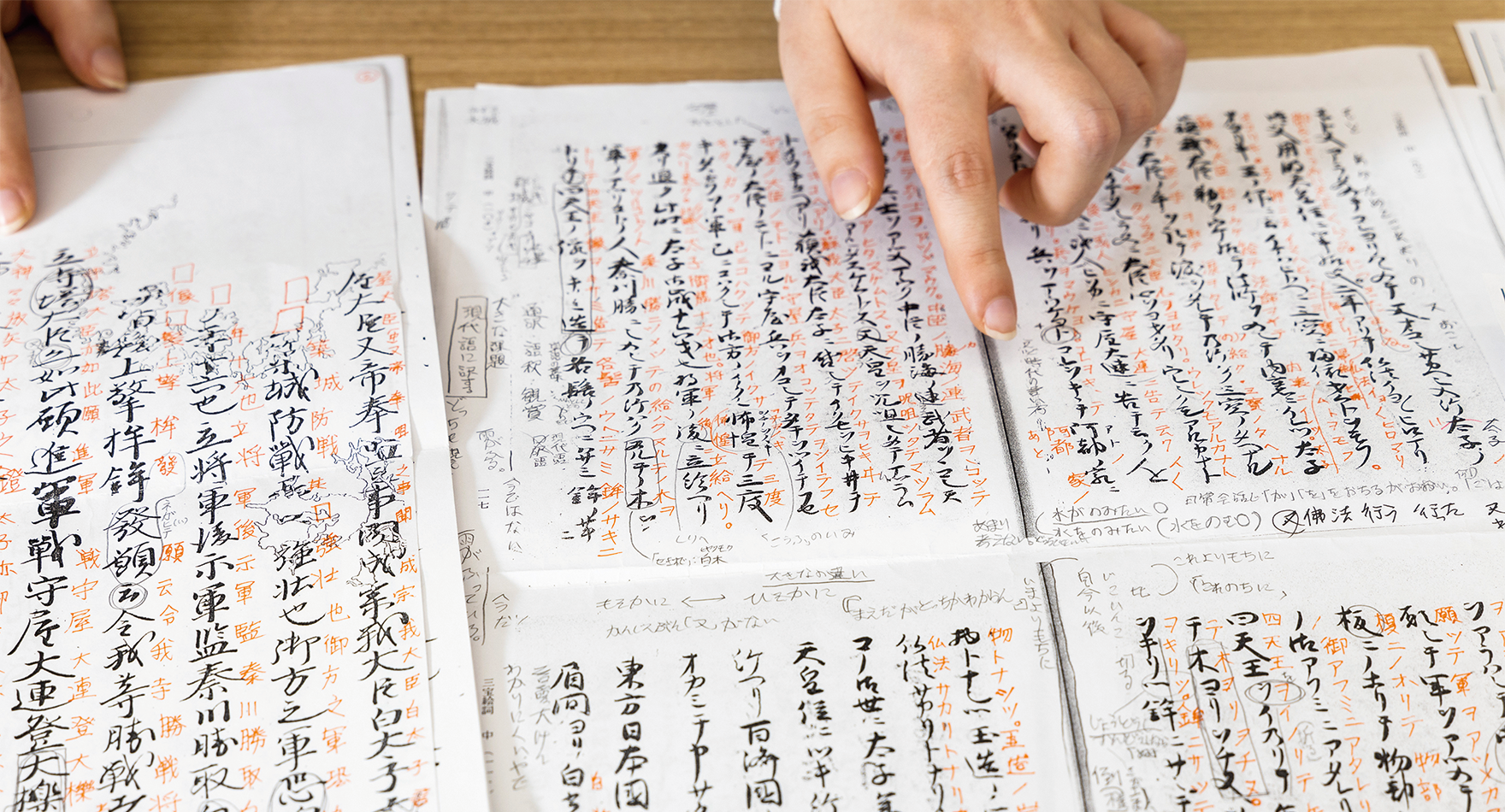
- PERSON
- STUDY
Fascinated by the wonders of dialects and old characters
Exploring the diversity and historical transitions of the Japanese language
/Third year student in the Faculty of Letters
Lucia Glanzner
"I want to study Japanese that even Japanese people don't understand!" Lucia is also interested in aspects like hentaigana, the old hiragana, which is now only seen in store names, and moji-e, which is a game from the Edo period where characters are combined to create a picture such as in 'Kiyaujizukue.' The inspiration for learning Japanese came from the popular TV show 'Downtown no Gaki no Tsukai ya Arahende!!' (lit. 'Downtown's We Aren't Errand Boys!') which she found on YouTube.
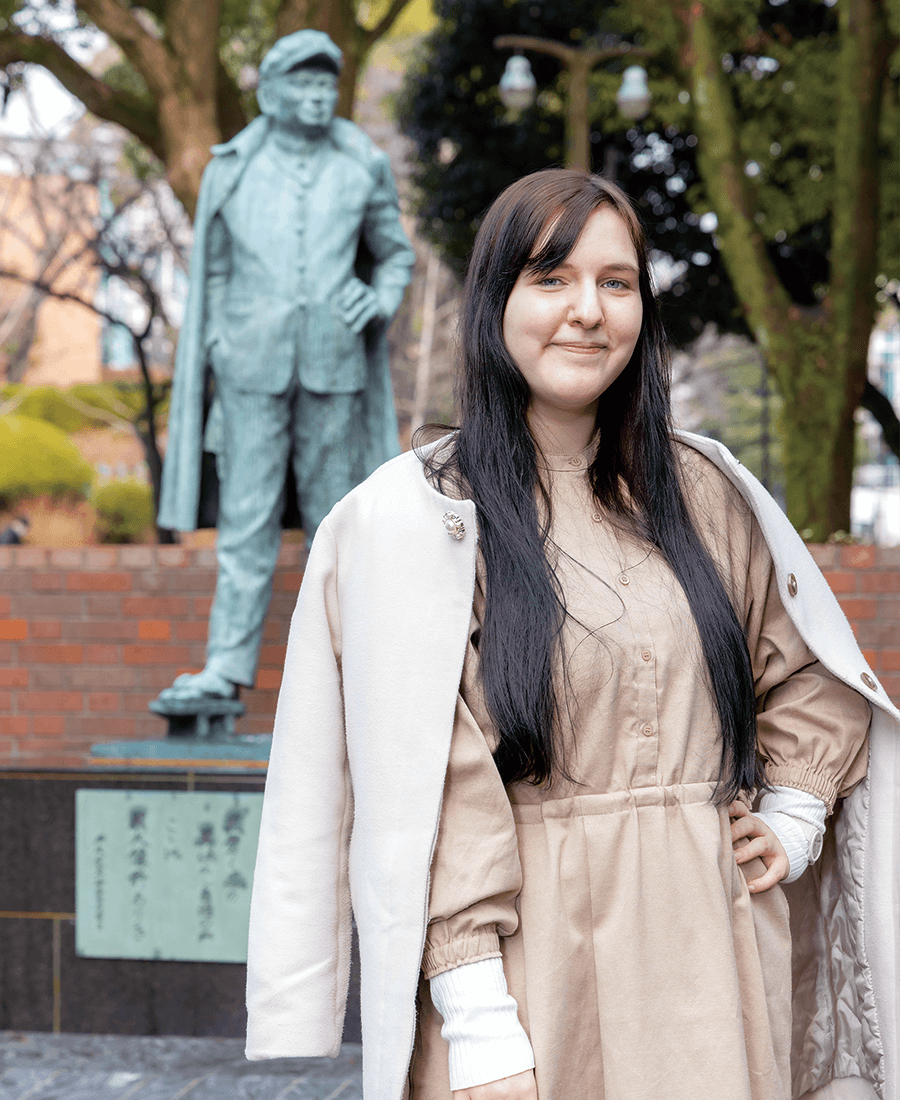
Encounter with Japanese Language
One expression in Japanese 'Darekakite' (Somebody come). Using katakana changes the impression on the reader. It represents a distinct personality and can't be expressed in Latin letters. Atmosphere is important in Japanese, and conversations are interesting in their nuances, from being angry to making fun of someone depending on how one says something." Lucia is majoring in Japanese and studying dialects and hentaigana which are her favorite. There is no end to the topics of the mysteries of the Japanese language, which leave even Japanese native speakers scratching their heads such as the difference between 'iru' and 'oru', and the same book having different fonts depending on the era, even though there are no clear rules.
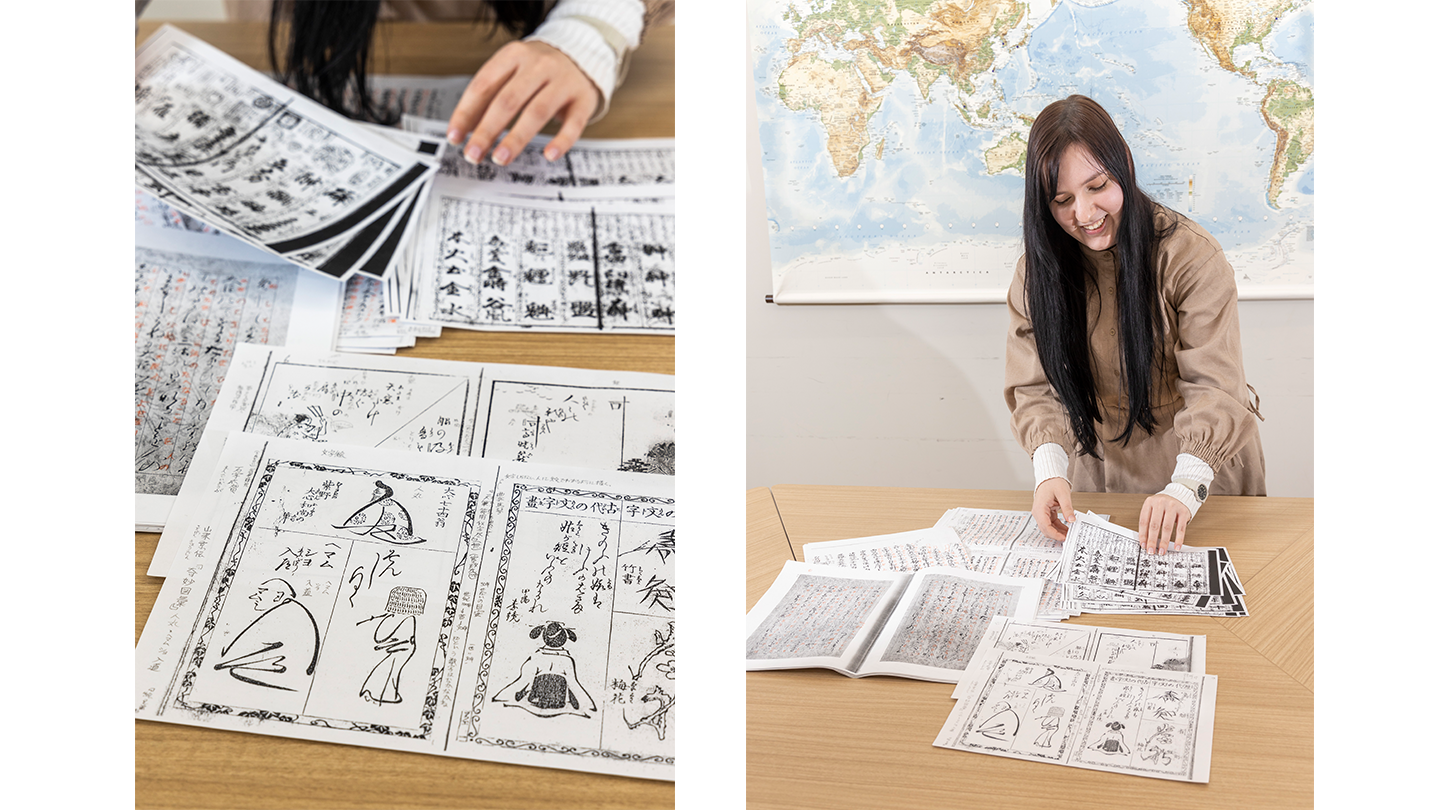
"Japanese life suits me. I think maybe I was Japanese in a previous life." Even as a child, she sometimes behaved a bit like a Japanese. For example, in Germany, there is no culture of apologizing when you are not at fault, but Lucia used to say 'Sorry', when the bus was late and she was late for class. Her German friends told her 'You act like a Japanese', and this piqued her curiosity so when she looked up things about Japan, she found only things that caught her interest such as the attitude to life, language, kanji, and hiragana. Then, when she was 12, she found 'Downtown no Gaki no Tsukai ya Arahende!!' on YouTube and became obsessed. "I only understood the tsukkomi (straight man), but just watching the action was so much fun. I thought it would be more enjoyable if I could understand the conversation, so I started studying Japanese on my own."
Encouraged by support from parents
The German education system requires students to choose a career early on. At the age of 12, she entered a school whose curriculum was based on the premise of entering university, but her feelings for Japan grew and grew. "It was important to study Japanese in order to go to Japan someday. Continuing to study in the German curriculum didn't suit my purposes," she says, so at the age of 14, she transferred to an international school in Germany, where all classes were in English, and continued to study Japanese on her own. Her parents watched over her, saying, "We want to support Lucia, who wants to learn about Japan."
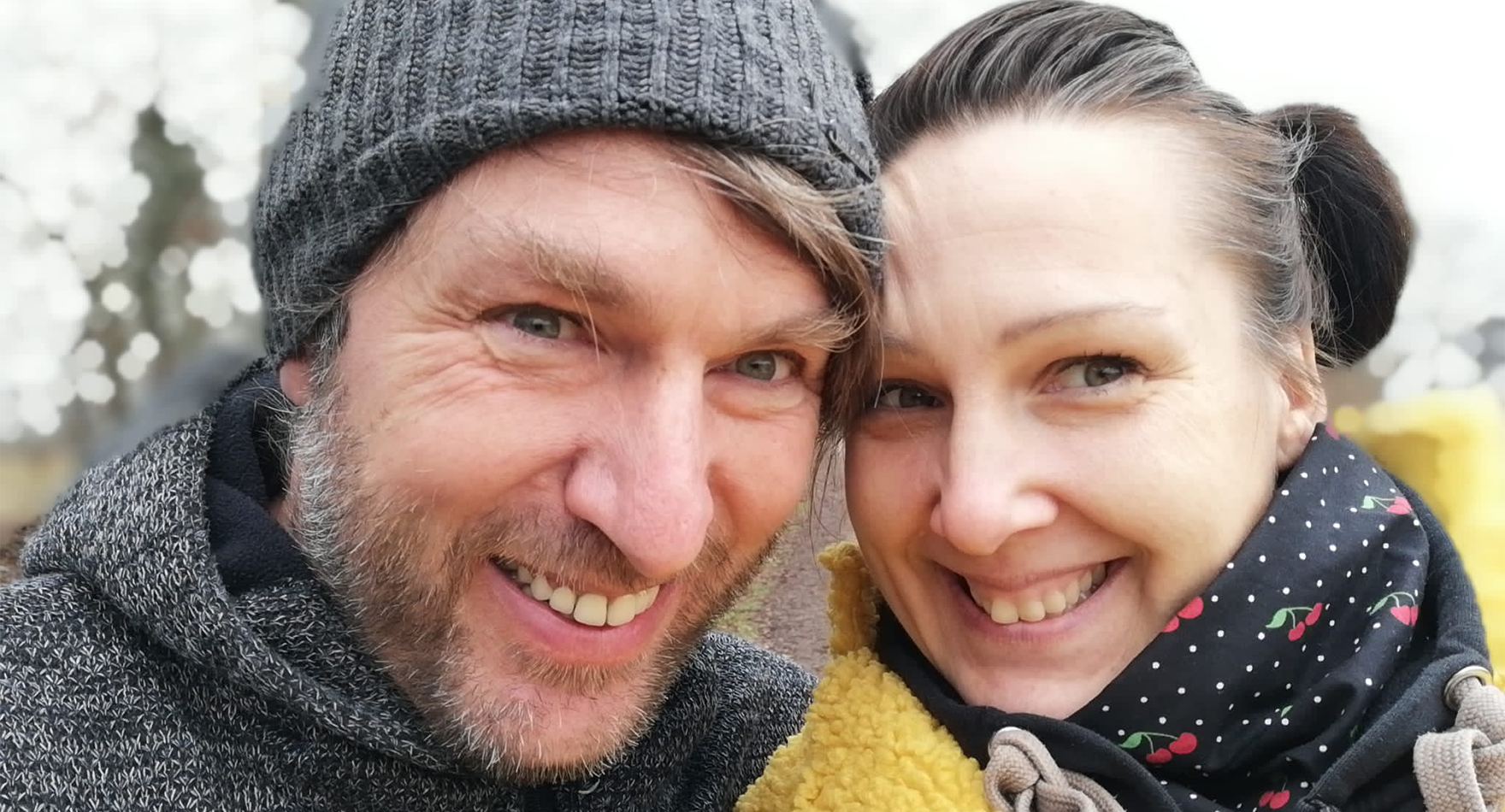
" In 2019, Lucia and her mother toured the open campuses of universities in Tokyo and Kansai. "The moment I got into Kandai, I could hear the cheering crowd and bustling sound of the cheerleaders, and my mother and I thought: This is it!" The similarity between her hometown and Suita City was the deciding factor. "In both towns if you speak in dialect, you feel closer to the person. Even though it was a foreign land, I felt ostalgic."
Becoming an active researcher in Japan as a future goal
She passed the AO entrance exam and began her long-cherished life in Japan, but only entered school in 2020 during the coronavirus pandemic. "I came to Japan on March 16. Entry to Japan was restricted on the 18th and so I was just in time. I didn't have any doubts about coming to Japan, but I was sad about it being just online classes for so long. But now I have a lot of friends, so that's OK." It was a time when the world was in turmoil, so some foreign students were unable to come to Japan. I take a positive attitude because even though I can't see my parents, we are all doing well.
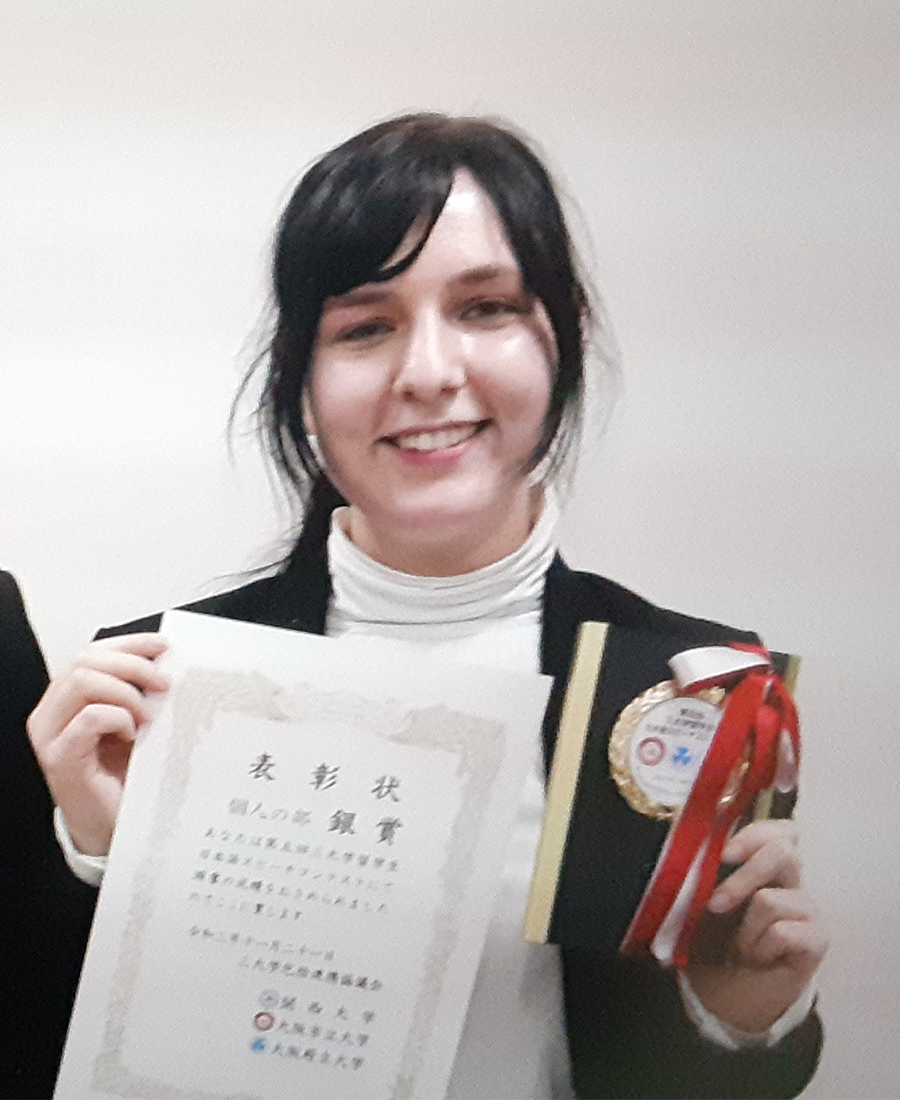
In the future, she wants to examine how other languages affect interlanguages. For example, a native Japanese speaker becomes able to use English well by learning. Lucia believes that as their English improves, this has an effect on their native language, Japanese. "People say my German is a little strange, maybe because I'm always using Japanese." My dream is to become a researcher in the future and be active in Japan. "How will the current Japanese language change in 100 or 200 years?" Lucia's exploration of the Japanese language has only just begun.
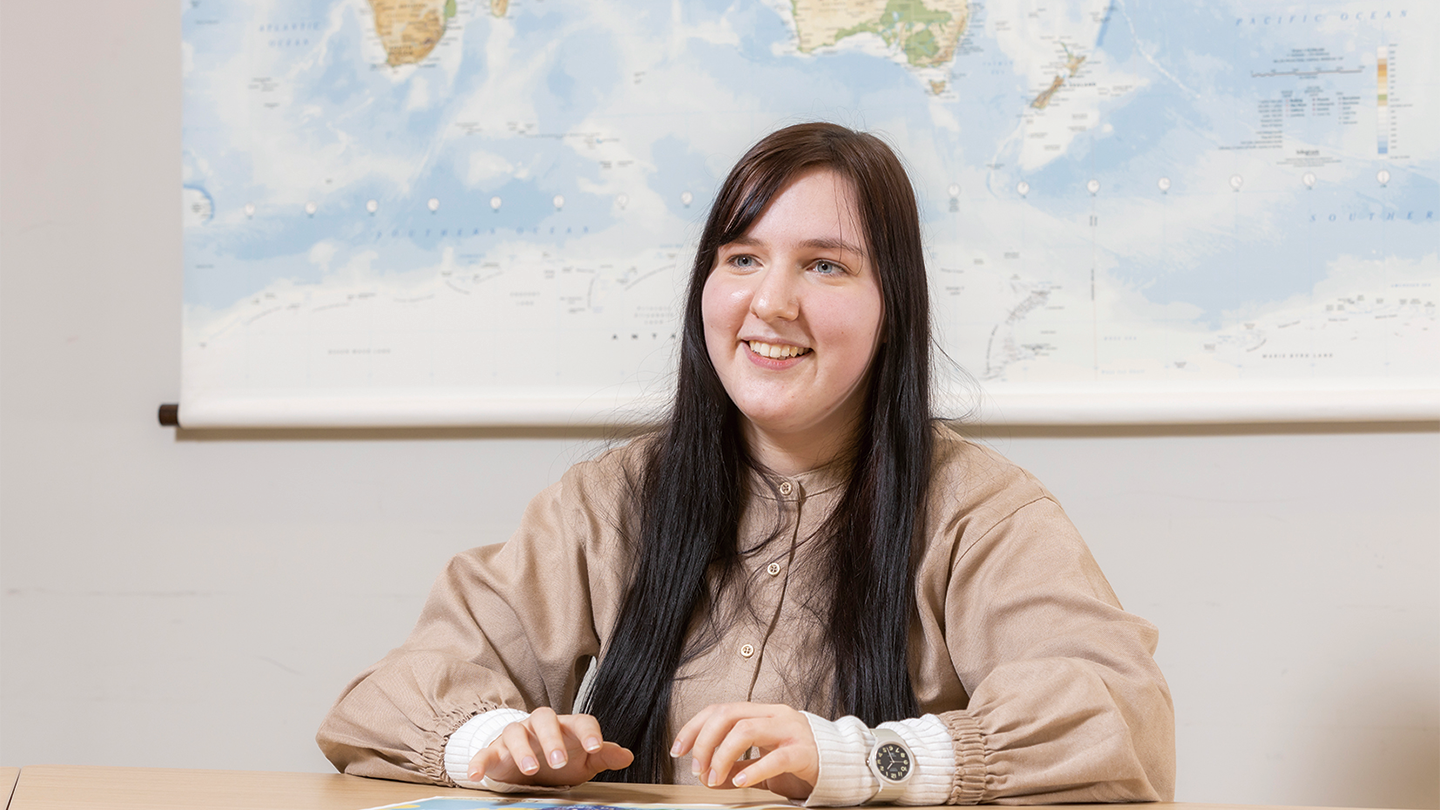
- LUCIA SERAFINA GLANZNER
- Born in 2000 in Einhausen, Germany. She first came to Japan at the age of 16 and spent 2 weeks at a summer school in Karuizawa. At the age of 17, she enrolled in Tokyo Inter-High School in a correspondence course, and in 2020 she entered the Faculty of Letters at Kansai University. The name Glanzner means'to become light 'in German. She uses Chinese character names (Mitsunari, Ruchia and Serafina) in the hope of playing an active role in Japan in the future.
Related articles
- TOP
- About Kansai University
- Public Relations
- List of Headlines
- Headline Article



